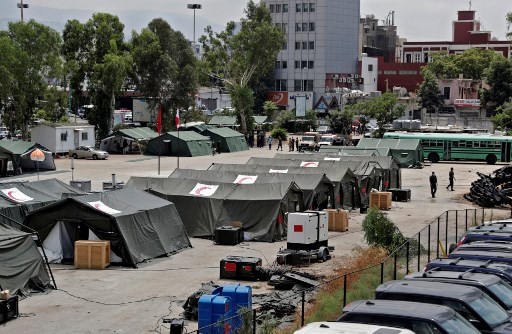Popular Reads
Top Results
Can't find what you're looking for?
View all search resultsPopular Reads
Top Results
Can't find what you're looking for?
View all search resultsOver half of Beirut health facilities 'non-functional': WHO
Change text size
Gift Premium Articles
to Anyone
M
ore than half of Beirut's healthcare facilities evaluated by the World Health Organization are "non-functional" following last week's deadly portside explosion, the organization said Wednesday.
Following an assessment of 55 clinics and health centers in the Lebanese capital, "we know now that just over 50 percent are non-functional," said WHO's regional emergency director Richard Brennan at a virtual press conference in Cairo.
Three major hospitals were non-functional and another three operating at well below normal capacity, he said.
"That means we have lost around 500 beds," he added.
He urged Lebanese authorities and their partners to "restore functionality of many of those health facilities as quickly as possible" to help the country deal with both casualties of the blast and a spike in novel coronavirus cases.
Lebanon has so far tallied 7,121 cases including 87 deaths, out of a population of six million, according to the Lebanese health ministry's tally on Tuesday.
The Eastern Mediterranean country was rocked on August 4 by its worst-ever peacetime disaster when more than 2,700 tons of ammonium nitrate exploded at Beirut port, killing 171 people and disfiguring the country's capital.
Iman Shankiti, WHO Representative for Lebanon, said intensive care units and regular beds were occupied by trauma cases following the explosion.
This, coupled with the increase in coronavirus infections, resulted in "deficiency within the ICU and the regular beds in hospitals... which will have an impact on the hospitalization capacity in Lebanon," she added.










